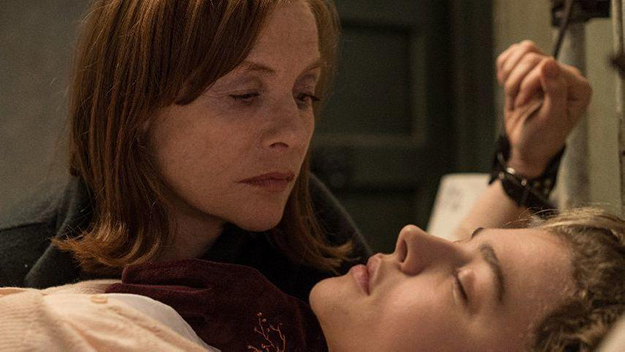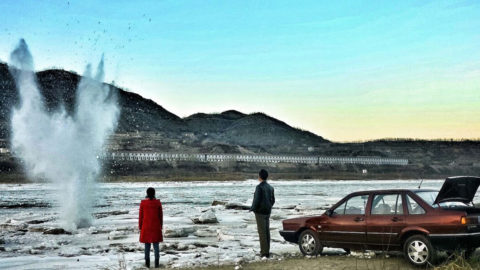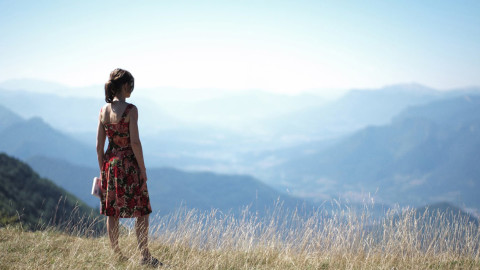Review: Greta

A contemporary gothic fairy tale, slight and scary, Greta is unmistakably a Neil Jordan film, if not quite on the level of The Crying Game (1992) and The End of the Affair (1999), or as idiosyncratic as The Butcher Boy (1997) and Breakfast on Pluto (2005). Set in contemporary Brooklyn and Manhattan, or rather Toronto and Dublin almost entirely standing in for those more costly locations, it is rooted in a traditional story of a generous young woman with a driving rescue fantasy whose misfortune is to have a mean, homicidal stepmother—as in Snow White, the first movie to send me hysterically weeping from the theater, the next one being Bambi. (Bambi lost his mother, but fortunately his father took on all the parenting responsibilities.)
Frances (Chloë Grace Moretz) is still in mourning for her mother when she arrives in Manhattan to room with her best friend from college, Erica (Maika Monroe), in a sprawling Tribeca loft financed by Erica’s father. One day she finds a handbag, left by accident—and who would imagine otherwise—on a subway seat. Being an honest woman, she bikes across the Williamsburg Bridge to return it to its owner, who lives in a dark mews house at the end of a long alley (like no Brooklyn house I’ve ever seen). The woman who answers the doorbell is Greta (Isabelle Huppert), and she is so happy that Frances has returned her handbag that she invites her in for tea.
Except for their shoulder-length bobs, Frances and Greta couldn’t be less alike. Frances’s full-featured, open face frequently floods with emotion and her body still retains traces of baby fat. Greta is middle-aged, extremely thin, and her chiseled face has a mask-like rigidity. She speaks with an accent that suggests she’s European but whether from east or west isn’t clear. Nevertheless the two women bond in part over a shared loss. Frances needs a mother substitute; Greta misses her daughter, who, she says vaguely, is studying abroad. Frances decides that a dog would alleviate the loneliness, so she and Greta go to a shelter to pick one out. At that point I became so worried about the dog’s fate that I nearly left the screening. But Frances has no problem with Greta, even when she begins to text and telephone often enough for Erica, who knows better than to get involved with clingy older women, to warn Frances that Greta is behaving like a stalker.
Then one night as she’s helping Greta cook dinner, Frances opens the wrong cabinet and there, lined up on a shelf, are a half-dozen handbags exactly like the one Frances found in the subway, each labeled with a woman’s name and phone number. (This is not a spoiler, since the scene is prominent in the trailer.) The image, which we see from Frances’s point of view, is so terrifying that it is as if she were Bluebeard’s last wife and had opened the door to the forbidden room where the bloody heads of the wives who preceded her are hanging from hooks. The sudden sense of engulfing horror is partly a result of expert camera movement and positioning, music, and editing, but it also has a great deal to do with the significance of handbags in women’s lives, not merely as status symbols, but as repositories of identity, and as fetish objects—substitutes and shields for what is hidden beneath skirts, pants, and undies. I think that many women will find Greta a particularly anxiety-provoking and haunting movie, not just because of the twisted mother/daughter bond made palpable by two fearless actors, but also because the object, which incites a struggle that by the end of the film borders on Grand Guignol, is a handbag. By the same token, I doubt that even in an era of gender fluidity, there are many men who will find this film compelling. Please, guys, go to see it, and prove me wrong.
Greta opens March 1.
Amy Taubin is a contributing editor to Film Comment and Artforum.





